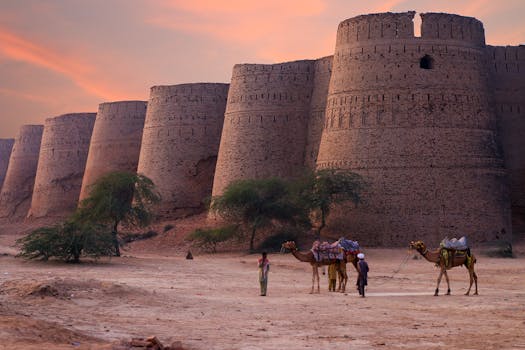
Introduction to Dubai’s Desert Landscape

The allure of the Dubai desert is undeniable with its sweeping sand dunes, vibrant sunsets, and a range of opportunities for adventure. Stretching across a stunning expanse of land, the desert isn’t just the backdrop of this global hub; it’s an alluring playground for thrill-seekers and nature enthusiasts alike. Today, we’re exploring various unique outdoor experiences that will take you deep into the heart of the stunning Arabian desert.
Dune Bashing: An Adrenaline Rush

For those seeking a thrill, dune bashing is essential when enjoying outdoor adventures in the Dubai desert. Riding in a powerful 4×4, adventurers can look forward to a stimulating ride over high sand dunes. These off-road vehicles glide effortlessly as they roll over undulating sandy hills and create unforgettable memories. Several tour operators provide this fun-filled ride, allowing you to fully embrace the energetic spirit of the desert.
Key Details:
- Duration: Typically 30 minutes to an hour
- Best Time: Late afternoons for stunning sunset views
- Age Restriction: Suitable for ages above 4 years
Sandboarding: Surfing on Sand

If you’ve ever wished to surf the desert waves instead of ocean waves, sandboarding offers that incredible experience. This exhilarating sport involves riding a specially designed board while gliding down the warm desert sand dunes. Beginners will have the opportunity for guidance and practice, enabling everyone to feel confident on the board. Grab your board, find your balance, and prepare for thrilling runs as you navigate the serene landscape created by nature itself.
Quick Tips:
- Equipment: Durable sandboards are usually available for rental.
- Attire: Wear loose-fitting clothing that minimizes discomfort.
- Water: Always stay hydrated; carry a water bottle!
Camel Rides: A Glorious Tradition

A cultural point of fascination is camel rides—traditional explorers slept on dunes while taking this majestic creature along for the experience. Tour agencies frequently include peaceful camel journeys within their packages. Whether it’s in routes along the desert trails or into beautiful sunsets, each walk becomes an enchanting adventure. Charmingly known as the ‘Ship of the Desert,’ the camel symbolizes good luck and fortitude across Arabian wisdom.
Experience Enhancement:
- Equipment: Comfortable seating/riding saddles will typically be on-site.
- Available Times: Early mornings or in the evenings to avoid heat.
- Assistance: Experienced guides are usually included in tour talks and camel management.
Desert Safari and Cultural Experiences

Exploring the desert extends beyond activities. A line of desert safari packages combines adventure with cultural enjoyment, creating offers such as Barbecue dinners under the stars, Traditional dance performances, and music with a distinctive touch of Middle Eastern flair at majestic rock encampments. Allocate your evening to visit souvenirs or feast on culinary delights shared with laughter and serenity after an eventful day!
Adventure Interaction:
- Culinary dining: Must-try traditional meals include Shawarma, Kabobs, and Natural Arabian Coffee.
- Sights: Visit markets focused on handicrafts presents memorable mementos.
- Privacy: Exclusive dinner experiences offer privacy for couples. More luxurious options entail a heightened end.
Perfect Time to Visit: Embrace the Season

While Ubai overall glows throughout the year basking under a dry coat gripping treasures lying ahead, under the blistering sun, approaching days render harrowing climate. Having said that, best times together favor a visit between October and April matched against cooler eat-season and even certain occasions during public holidays as it neither deprives shadows from winters, surf-themed tourism vice serums.






